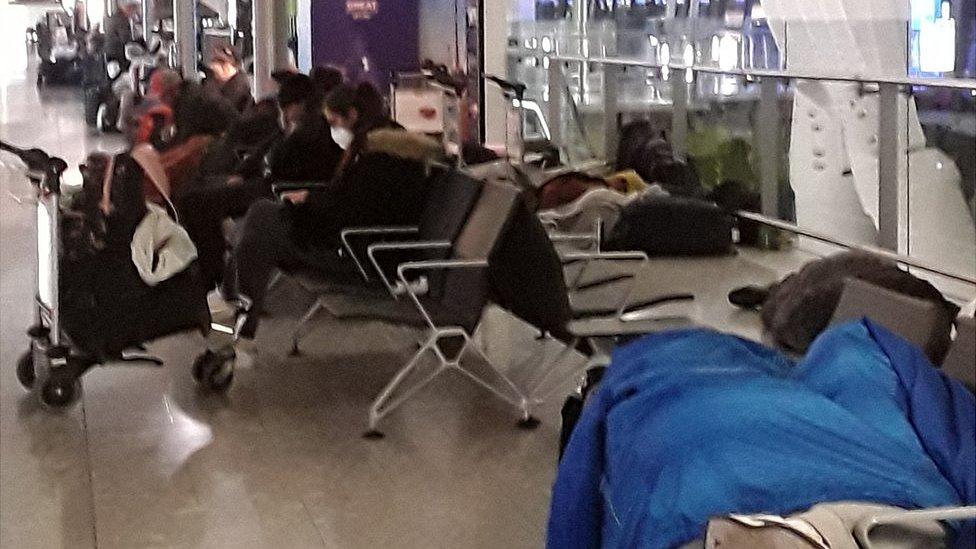Coronavirus: Thousands of homeless 'back on streets by July'
- Published

Thousands of homeless people who have been housed during the coronavirus pandemic could return to the streets by the end of June, a charity has warned.
Since the lockdown began, more than 14,500 people who were on the streets or at risk of sleeping rough have been given emergency accommodation.
But Crisis has warned contracts between local councils and hotels are due to end as government funding runs out.
The government said councils must continue to provide accommodation.
But councils have asked the government to be clear on what extra practical support they will get.
Local authorities in England began moving rough sleepers into emergency accommodation such as hotels in March after the start of the coronavirus lockdown.
The councils were given £3.2m from the government as part of an emergency scheme called "Everyone In", which was aimed at stopping the spread of the virus.
But earlier this month, it emerged government funding for that scheme was to end. The government said it had given, external councils an extra £3.2bn in funding to help them deal with the pandemic, although that money is not specifically for the emergency rough sleeping scheme.
Crisis called the action to house rough sleepers over the past weeks "extraordinary", adding: "This has demonstrated that when the political will is there it is possible to end homelessness."
But the charity said the government should take further action to provide everyone with permanent housing, warning that if not people will be forced to return to the streets.
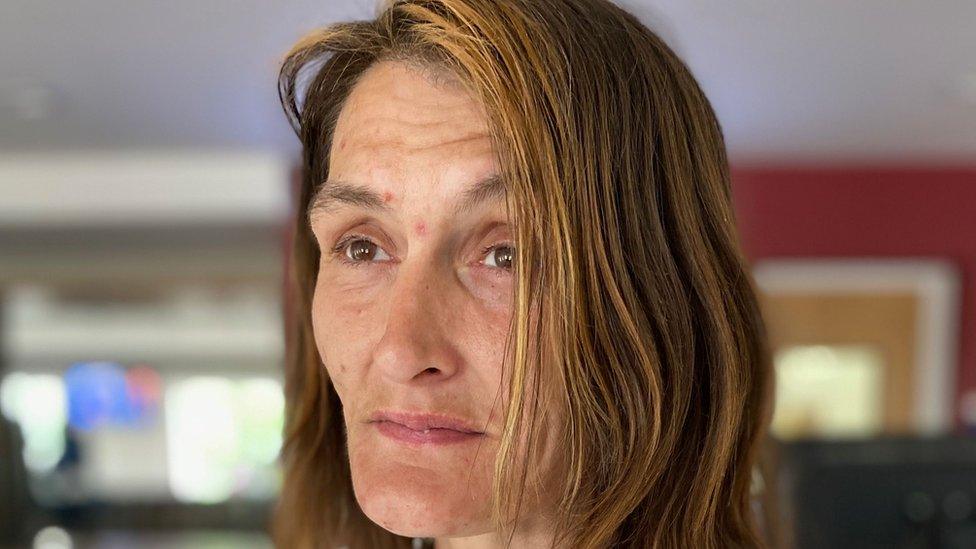
Amanda, who was given accommodation in Manchester, said she was "dizzy with all the help"
Matt Downie, director of policy at the charity, said most contracts between local authorities and hotels are set to end at the end of June and the charity had received "no indications at all" from the government that more money is coming to extend the scheme.
Mr Downie said: "We will take one of two paths here: one is that 15,000 people are permanently helped out of homelessness through the amazing Everyone In scheme, or we will see a massive increase in rough sleeping in this country just at the point when we thought it would be possible to avoid that.
"It's within the government's control to make decisions so that doesn't happen, for example to either continue hotel schemes or to give alternative arrangements to local authorities and individuals."
Crisis has estimated it would cost £282m to provide the people in emergency accommodation with permanent housing and support for the next 12 months.
How the UK's homeless are coping during the coronavirus pandemic
The charity also carried out a survey of 150 charities and organisations in England, Scotland and Wales and found more than half reported a rise in people seeking help during the lockdown.
Some people have lost their homes because their jobs have gone, while for others there have been relationship problems or an end to sofa surfing arrangements.
Crisis wants the government to pass an emergency homelessness bill forcing councils in England to provide emergency accommodation for a year to anyone who becomes homeless during the pandemic.
The government said any suggestion it was rowing back on its commitment to support rough sleepers was untrue.
"Our new rough sleeping taskforce will ensure as many people as possible who have been brought in off the streets in this pandemic do not return," a spokesman said.
"We have accelerated plans for new services - backed by £433m - which will ensure 6,000 new housing units will be put into the system, with 3,300 available in the next 12 months."
The Welsh government has given, external a £20m to councils, after an initial £10m, to help councils house rough sleepers "and ensure no-one need return to rough sleeping".
Meanwhile, the Scottish government has announced, external £350m to help councils, charities and groups, including those working with rough sleepers.
And Northern Ireland's Housing Executive approved emergency measures, external including the sourcing of additional temporary accommodation for those who are homeless.
The body representing local councils in England and Wales, the Local Government Association, said councils had faced "significant challenges" housing large numbers of homeless people since the coronavirus outbreak.
Cllr David Renard, the LGA's housing spokesman, said the overwhelming majority - nearly 15,000 - of rough sleepers and homeless people have been found accommodation.
But he added: "Following the initial surge in demand for accommodation, councils are also now experiencing an urgent need for more accommodation as people, including young people, continue to face homelessness and rough sleeping.
"While the recently announced funding for councils to support rough sleepers is positive, we still need clarity from government on what additional practical support will be available to councils to help them move people out of hotels and temporary accommodation and into housing."
The government said any suggestion it is rowing back on its commitment to support rough sleepers is untrue, adding: "We are clear that councils must continue to provide safe accommodation.
"Our new rough sleeping taskforce will ensure as many people as possible who have been brought in off the streets in this pandemic do not return. We have accelerated plans for new services - backed by £433m - which will ensure 6,000 new housing units will be put into the system, with 3,300 available in the next 12 months."
- Published16 May 2020
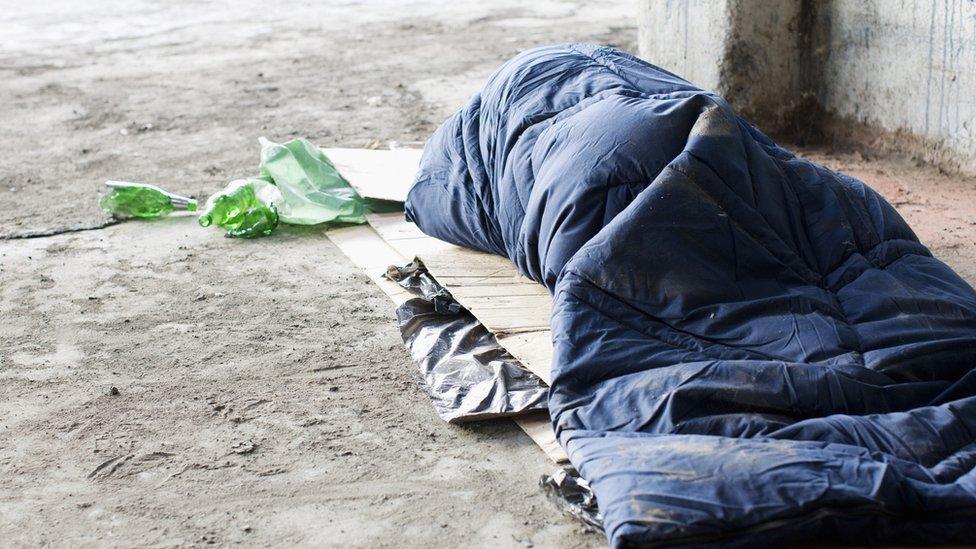
- Published22 May 2020

- Published18 April 2020
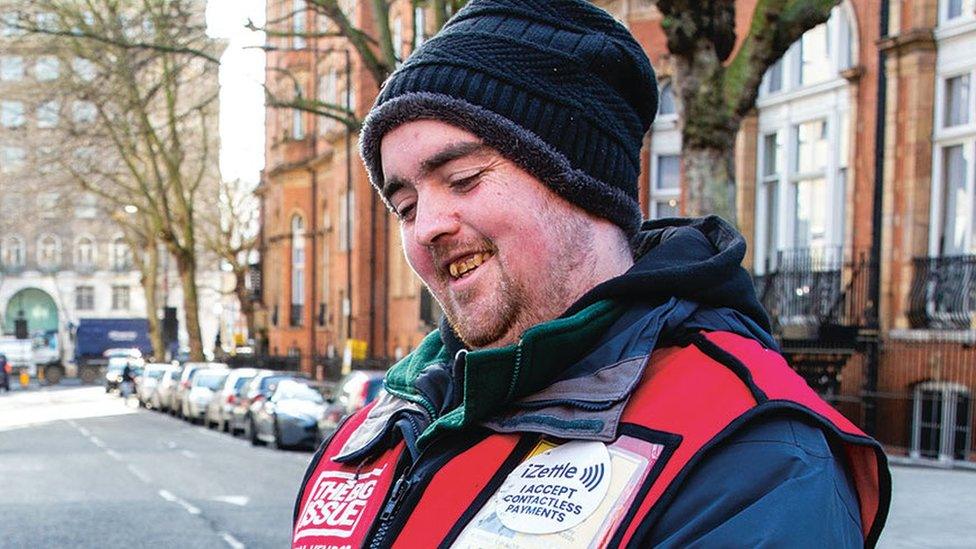
- Published15 April 2020
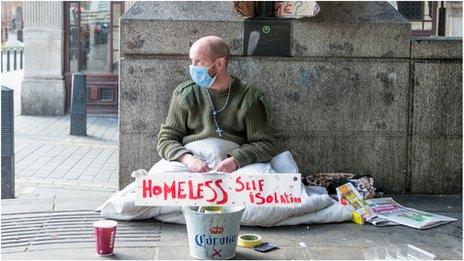
- Published3 April 2020
